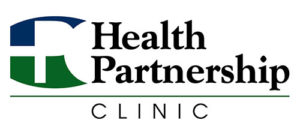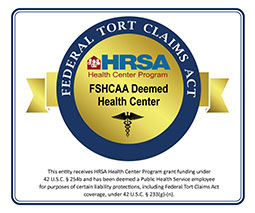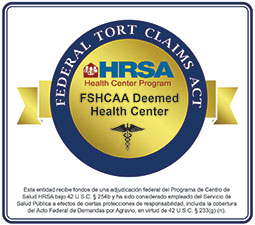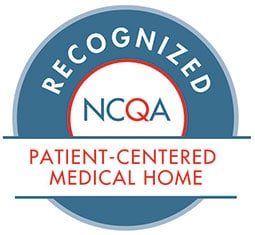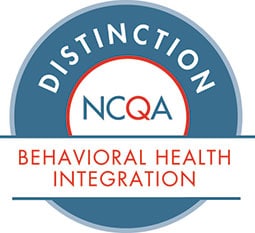Six Questions Parents Are Asking About COVID-19
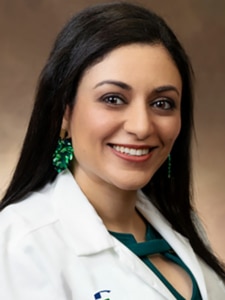 By Cheri El-Halawany, MD, FAAP, Pediatrician at Health Partnership Clinic
By Cheri El-Halawany, MD, FAAP, Pediatrician at Health Partnership Clinic
As a board-certified pediatrician at Health Partnership Clinic (HPC), Cheri El-Halawany, MD, FAAP, is always fielding questions from worried parents. With a spike in COVID-19 cases, there are growing concerns of parents regarding the vaccine, navigating a new normal and prevention. Dr. El-Halawany responds to six questions parents are asking most about COVID-19.
Q: My children’s elementary school has notified us that all students will be back in person 100 percent of the time in August. My kids are too young for the vaccine, should I be worried?
A: I hear this a lot from concerned parents. Unlike last year, we have a lot more data on this virus, including how it impacts our elementary school age children. Fortunately, children in this age group have proven remarkably resilient to the virus. While there is still a chance that a child will come down with a serious case, most children that catch the virus avoid serious illness and don’t experience long term symptoms. I am not saying that COVID is no big deal in children, but it is a much more manageable risk in this population. Most health professionals agree that the negative impacts of remote learning on intellectual and social development (as well as child temperament) more than outweigh the risks of illness in this age group.
Q: So, what does the “new normal” look like for families? It seems like we just got our kids used to wearing masks, and now they don’t have to anymore. Are there any habits we should continue?
A: One of the few pleasant side effects of our “COVID Year”, as I sometimes call it, was the low rate of flu infections. We were too busy taking care of COVID patients to celebrate, but our influenza admissions to the local hospitals were the lowest in several decades. Many of the most common COVID practices (hand washing, disinfecting surfaces, limiting exposure to crowds of people during the flu season, etc.) are effective strategies for avoiding seasonal illnesses. Also, the focus on vaccination as the most important part of our nation’s COVID recovery plan applies to so many other serious diseases for which vaccines exist. We should all be asking our primary care physicians if we need any booster shots or vaccines at our next appointment.
Q: How do you feel about vaccinating children? I have heard of side effects, some minor and a few severe. Does the risk warrant it?
 A: I believe in each of the COVID vaccines. Many of the vaccine manufacturers have been studying their effects in children and young adults for several months prior to their recent approval. I agree with the Centers for Disease Control and Prevention’s (CDC) recent approval of vaccinating individuals 12 and over. I believe the regulators have done a nice job of balancing the benefits of vaccination with a measure of deliberateness needed to make sure each vaccine is safe in younger age groups. Bottom line: I would not hesitate to give my own child a vaccine approved for use by the CDC.
A: I believe in each of the COVID vaccines. Many of the vaccine manufacturers have been studying their effects in children and young adults for several months prior to their recent approval. I agree with the Centers for Disease Control and Prevention’s (CDC) recent approval of vaccinating individuals 12 and over. I believe the regulators have done a nice job of balancing the benefits of vaccination with a measure of deliberateness needed to make sure each vaccine is safe in younger age groups. Bottom line: I would not hesitate to give my own child a vaccine approved for use by the CDC.
Q: Are there any activities that we should avoid?
A: We all know that kids will be kids, and sometimes it feels like they are walking petri dishes. I, along with many other pediatricians, have been very encouraged by the relatively low transmission rates in elementary schools that reopened toward the end of this last school year. While scientists are still studying how the virus is spread within the child population, we suspect that children benefit from a number of circumstances, including a more resilient immune response, to coronaviruses in general.
That being said, I would still encourage caution with very high traffic play areas that are challenging to keep clean. Ball pits may be fun, but they were kind of gross even before the pandemic, and it’s best to stay clear for a little while longer. However, in line with CDC guidance, it’s generally safe to resume organized sports, choir and band.
Q: We have put off all non-necessary visits to the doctor, as well as non-emergency in-patient procedures, during the pandemic. Is it safe to go back to the hospital and my doctor’s office?
A: The short answer is yes. In the early days, we were concerned about a lack of PPE and potential cross-transmission between patients. The PPE shortages have been resolved, and patient cross transmission never proved to be a widespread problem. Almost every hospital has strict rapid COVID testing requirements prior to admission as well as for all Emergency Room patients, so there is at most a minimal risk of contracting the virus in the hospital. To be honest, you’re more likely to get it at the grocery store than at a hospital or doctor’s office.
At HPC, we still require masks and screen for COVID-19. In addition, adult patients (and their legal guardian/caregiver) may attend an appointment. Family or friends must wait in their cars or at home. For our pediatric patients, one parent/guardian is allowed along with minor siblings. We also continue to practice social distancing (minimum of six feet). Our clinics in Olathe, Shawnee Mission, Paola and Ottawa provide COVID testing after assessment from a health provider.
Q: My child has had COVID and recovered from the main illness but is still struggling with some lingering symptoms. What do we know about the long-term effects of the virus?
A: As the experts have said all along, COVID is a serious infection, and like many other serious infections it can leave some patients with a longer road to full recovery. There’s been a lot of talk about COVID “long-haulers” that are still suffering from significant symptoms months after initially contracting the virus. While significant, this is a comparatively small group of patients, and we are still learning about what the road to recovery looks like for patients with lingering effects.
However, there are other infections that patients continue to improve from for months and even years after the onset of symptoms. So, I would encourage those who may still be suffering to not lose hope and be patient as we continue to better understand the effects of the virus and how to best treat them.
